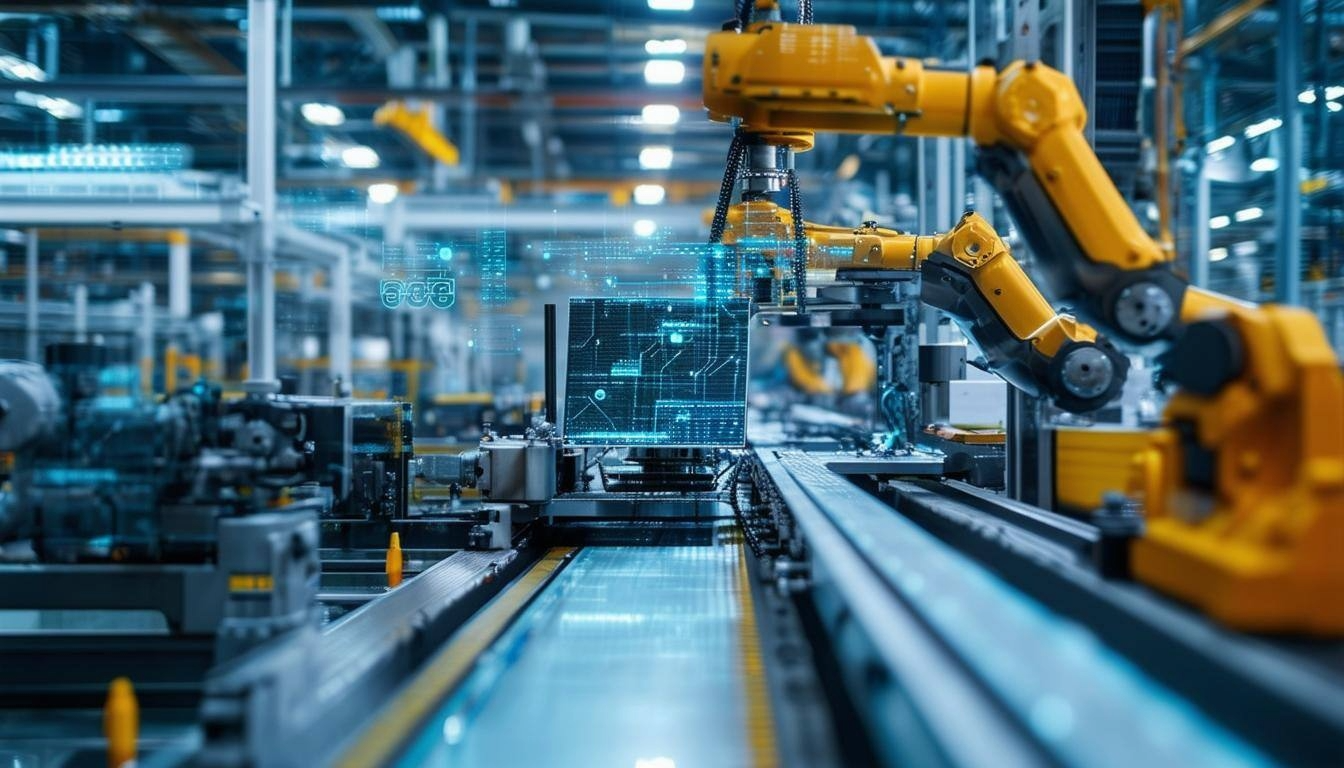From Firefighting to Foresight: AI as a Colleague in Operations

Every operations director or COO knows the drill: your day starts with a tight schedule, but within an hour you're putting out fires. A delayed delivery, an angry customer, or an unexpected process error—firefighting is often the norm. But what if things could be different? What if, instead of constantly reacting, you had a colleague who said, “Heads up—this issue is coming. Here are three options.”
Firefighting: Today's Reality
In many organizations, operations is still largely reactive. Information is scattered across systems, processes are fragmented, and employees must manually connect the dots. There's little time for structural improvements or strategic oversight—even though the tools for proactive work are already available.
Foresight: What AI Enables
SAP is currently developing an AI solution to make this shift possible, with Joule at its core. Joule can be seen as a conductor: overseeing the situation, bringing together data, and having the right AI agent execute the right task.
Joule connects data from multiple systems (e.g., SAP S/4HANA, CRM, Outlook) via the SAP Business Technology Platform. This gives Joule access to real-time information within the SAP ecosystem—and, depending on integration, to external systems and apps as well. Based on this context, Joule activates specialized AI agents, each designed to perform a specific task quickly and effectively.
For customers using SAP's cloud solutions, Joule is already available—and SAP continues to expand its capabilities throughout 2025.
Joule, Your Helpful Colleague
Imagine a customer sends an email asking about a delivery. Joule recognizes the question and automatically gathers the right information from various systems—order status from ERP, customer data from CRM, and shipping info from the logistics provider.
Joule checks for delays, finds the root cause, and drafts a suitable response. The reply appears directly in your inbox—ready to send. No more manual searching across systems.
Or consider contract negotiations: Joule can suggest actions based on the content of the discussion and past outcomes.
Joule also adds value in customer service. Picture this: a customer calls with a problem. An employee listens, looks up the right info, and solves the issue. Multiple customers may call about similar issues. Joule learns from these interactions, identifies recurring problems and solutions, and proposes the appropriate next steps for similar future cases—quickly and consistently. Employees can spend less time searching and more time on the human connection.
AI as a Colleague, Not a Replacement
The power of AI lies not in taking over entire jobs, but in supporting your team. Many operational roles consist of a mix of tasks. AI agents can take over the repetitive and predictable parts, enabling people to focus on collaboration, leadership, and decision-making. That’s why we say: AI becomes your colleague—not your replacement.
Humans Still Take the Lead
In most applications, AI collaborates with people to deliver results—it doesn’t replace them. AI suggests; humans decide. This is known as “human in the loop.”
Examples include:
- A customer service agent receives a proposed reply but decides whether it fits the situation.
- A supply chain planner gets an alert about a potential disruption and chooses from multiple response strategies.
- A financial controller reviews anomalies flagged by AI before processing them further.
What Needs to Be in Place?
Sounds promising? Then now is the time to prepare your organization:
- Cloud-ready ERP: Outdated, on-premise systems often lack the flexibility, speed, and computing power that AI demands. SAP is therefore fully committed to cloud solutions like SAP S/4HANA.
- Data quality: AI only works well if your data is complete, reliable, and accessible. Poor or inaccessible data results in poor outcomes—“garbage in, garbage out.”
- Integration: For an AI agent like Joule to work effectively, systems must communicate seamlessly. Without proper integration, AI lacks the context and cohesion needed to generate valuable insights.
An Opportunity Not to Miss
SAP will stop supporting legacy ERP systems like SAP ECC in 2027. This means many companies must transition to modern ERP platforms like SAP S/4HANA in the coming years. For those making this mandatory move, now is also the time to invest in AI. Modern systems increasingly include integrated AI capabilities like Joule. The transition isn’t just about replacing old systems—it’s about paving the way for more efficient processes and less ad hoc work.
What Does This Mean for Your Organization?
This development offers huge opportunities—but also requires preparation. Companies that invest in their digital foundation now will soon reap the benefits: less ad hoc work, faster processes, higher customer satisfaction, and lower costs.
For you, this means: take strategic steps now. Don’t wait until 2027.
Ready to Make the Shift?
The question isn’t if AI will transform your operations, but when. Want to see what that could look like in your organization? We’d love to explore it with you.

Luc Slangen is a young professional currently working on his graduation project focused on the adoption of Artificial Intelligence (AI) in Enterprise Resource Planning (ERP) systems.
Last edited on May, 23 2025 01:42:16 PM
Reading time: 6 minutes
Written by Luc Slangen
Also see..
OverviewChange management: People at the center of SAP S/4HANA implementations
In the rapidly evolving world of business operations, digitalization, such as an SAP S/4HANA...
Read more ⟶How SAP Signavio Enhances S/4HANA Migration & Process Standardisation
Do you find that inconsistent processes often create confusion, errors, and delays in your...
Read more ⟶Revolutionize Your Design-To-Operate Process with SAP and Siemens
In the fast-evolving world of manufacturing, agility and precision are essential. However,...
Read more ⟶

